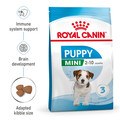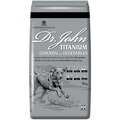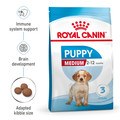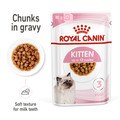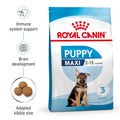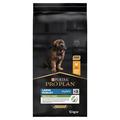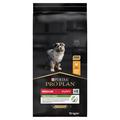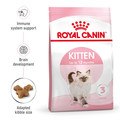You’re thinking about getting a new puppy or kitten! Maybe you’ve just taken home your new furry family member. Whatever the case, we’ve made a checklist to help you navigate the maze that is how to care for them. Which wormer? Should I neuter? What about vaccines? We’ve got it all covered.
-
Diet
The nutritional requirements for your puppy/kitten are higher than for an adult dog due to the excess strain on the body for growth. You should be using a complete kitten or puppy diet to meet these needs. You can then transition from this when your pet is fully grown. The timing of this transition phase varies depending on the brand and breed, so we advise reading the packaging of your food to work this out.
-
Vaccinations
Vaccines protect against a few of the most common and deadly diseases that can affect our pets. It’s really important to vaccinate as the benefits far outweigh the cost/risks.
Generally the first vaccine is recommended at 8 or 9 weeks of age and a second is then given 3 to 4 weeks later. You should discuss with your local vet and follow their recommended vaccination protocols as these may vary.
When can they go out?
Your pet should not go out and interact with other animals until they are fully vaccinated. Full protection usually occurs 3 weeks after the final vaccination so it is advised to wait until then. This varies with the vaccine course though so check this with your vet first.
We recommend keeping kittens indoors until they are neutered and ideally until they are beyond a year of age. This is because they tend to be less streetwise and are at a higher risk of road traffic accidents. Unneutered females are very good at getting pregnant too and can have a litter as early as 6 months of age! Keeping in until neutering avoids this.
-
Neutering
Best advice is to neuter any dog/cat as the benefits for a healthy pet generally outweigh the risks of the procedure itself. This is optional though and your local vet will be best to give recommendations for your specific pet. Below is a helpful pros and cons table to help you make this decision.
| Puppy - Male | Puppy - Female | Kitten - Male | Kitten - Female | |
| Pros | - Calmer - Reduced overall risk if prostate problems - Prevent testicular diseases | - Prevent many life threatening conditions; uterine/ovarian cancer, infected uterus (pyometra) - Reduces the risk of mammary cancer - Prevent seasons | - Calmer - Reduce risk of cat fights - Prevent testicular diseases | - Prevent many life threatening conditions; uterine/ovarian cancer, infected uterus (pyometra) - Reduces the risk of mammary cancer - Prevent seasons |
| Cons | - Anaesthetic risk | - Anaesthetic risk | - Anaesthetic risk | - Anaesthetic risk |
NB For a healthy pet, the anaesthetic risk is very very low.
-
Flea/worming
Puppies/kittens are often born with worms as they have been transferred through their mother’s placenta in the womb. These will grow over a few weeks/months and it’s important to routinely worm to prevent an infestation. Fleas are easily picked up from the mother or other pets so it is advised to cover these too.
Flea prevention:
Up to 8 weeks old, only fipronil sprays are safe and licensed for use (Frontline Spray or FiproClear Spray). Once 8 weeks or older then Advantage Spot On is a good over-the-counter option to go for.
Worming:
You should worm your pup/kitten at 2, 5, 8, 10 and 12 weeks old, then monthly until 6 months old. Panacur Liquid or Paste is safe for use at any age so is suitable. Once old enough then you can use combination wormers, such as our own brand TermaWorm which is suitable when over 6 weeks of age.
-
Insurance
It is strongly advised to get an insurance policy for your pet’s healthcare. Routine problems such as ear infections usually cost under £100 but if any kind of surgery, hospitalisation or investigation is required then this can easily cost thousands of pounds. You never want to be in the situation where you have to decide between money and your pet! A lifetime cover is advised as many conditions will need lifelong treatment. Annual or 'accident only' covers tend to have a limit per condition which can be easily reached. Always check the T&Cs of your insurance policy to see if there are any limits like this.
We hope this summary has been helpful. We also recommend reading Puppy preparation & kitten care for information on the essentials you will need for your puppy and/or kitten. This includes tips on bedding, toileting, toys and diet.
If you have any specific questions then please contact us at [email protected] and we would be very happy to help further.
Written by: Dr. Nick Garside BVetMed MRCVS



